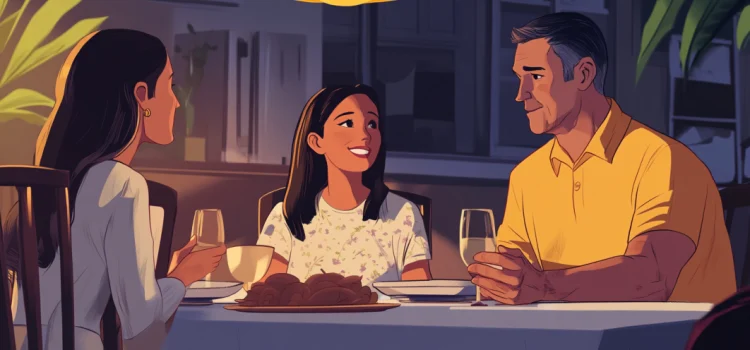

This article is an excerpt from the Shortform book guide to "The Top Five Regrets of the Dying" by Bronnie Ware. Shortform has the world's best summaries and analyses of books you should be reading.
Like this article? Sign up for a free trial here.
Do you often hide your emotions and feelings from others? Why should you start opening up to your loved ones?
One of the top regrets of the dying is that they weren’t more open about their feelings. When you try to hide your emotions from others, you’re not allowing them to know the true you.
Here’s why you should be more open with your friends and family, from the book The Top Five Regrets of the Dying.
The Regret of Not Sharing Honest Feelings
One regret many of Bronnie Ware’s patients had was not being brave enough to be honest about their feelings.
Her client, Jozsef, spent most of his life working and hiding his emotions because he was afraid to open up and show his feelings. Later in life, he realized that by not being honest, he’d missed out on the closeness, warmth, and love that come from communicating openly with others. In the end, he told Ware that he wished his family could truly know and understand who he was as a person.
(Shortform note: The struggle to be emotionally close with others is known as emotional detachment. People who are emotionally detached may find it hard to create or maintain relationships, express affection, or even want to be around others. They might also struggle to empathize with others or share their own emotions. For some people, emotional detachment is a voluntary coping mechanism to avoid pain or stress. But others develop emotional detachment as a result of traumatic experiences or underlying psychological conditions. You can treat emotional detachment through therapies like cognitive-behavioral therapy or acceptance and commitment therapy, which help address the mindsets and behaviors that lead to emotional detachment.)
While holding back your feelings can feel safer and easier in vulnerable moments, says Ware, it prevents you from building stronger relationships with others and being understood for who you really are. Words left unsaid create barriers because they prevent others from being able to understand you and respond to your real feelings and needs. Ware argues that honest communication, especially about difficult topics, deepens your relationships. For instance, Ware spoke honestly with her grandmother about her grandmother’s old age and the thought of losing her. This allowed them to say everything they wanted the other person to know, share meaningful thoughts, and appreciate each other.
(Shortform note: Expressing your true feelings is necessary to achieve what Brené Brown calls “true belonging.” In Braving the Wilderness, Brown explains that true belonging means being genuine about what you think and feel, even if it goes against what others expect of you. It’s the opposite of just trying to fit in by hiding parts of yourself. Speaking your truth comes with risks and rewards: You might face judgment or rejection from others, but you also open the door to deeper, more meaningful connections, thoughtful discussions, and inner peace. As Brown puts it, striving for true belonging is like venturing into the “wilderness”—it can be intimidating to trek through, but it leads to the most fulfilling experiences.)
Speak Your Mind
Ware writes that constantly worrying about how others might react prevents us from speaking our minds. To avoid the regret of not sharing your honest feelings, Ware suggests you openly express your emotions like children do—they never hesitate to show how they’re feeling, whether they’re happy, sad, or angry. Ware acknowledges that not everyone will react well to your honesty; for example, some might end their relationships with you. But others’ reactions can help you distinguish positive, healthy relationships from superficial ones. By being honest, you can be sure that the relationships that remain are based on mutual respect and understanding.
(Shortform note: You can better express your feelings to others by expanding your emotional vocabulary. In Atlas of the Heart, Brené Brown describes 87 emotions to help you understand and communicate the wide spectrum of emotions you can experience. She points out that many people can only name three basic emotions: happiness, sadness, and anger. This limited vocabulary prevents people from fully sharing their experiences with others. Learning more words to describe how you feel can make it easier to express yourself honestly and accurately, allowing you to form deeper connections with others.)

———End of Preview———
Like what you just read? Read the rest of the world's best book summary and analysis of Bronnie Ware's "The Top Five Regrets of the Dying" at Shortform.
Here's what you'll find in our full The Top Five Regrets of the Dying summary:
- The beliefs that prevent you from living to your fullest potential
- How to make a change in your life before it’s too late
- The most common regrets people have before they die






